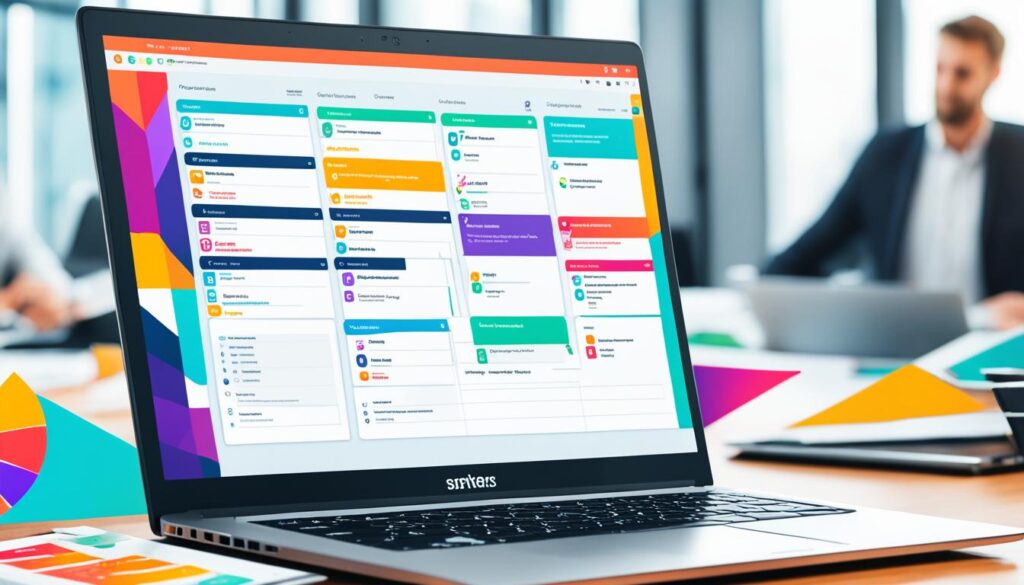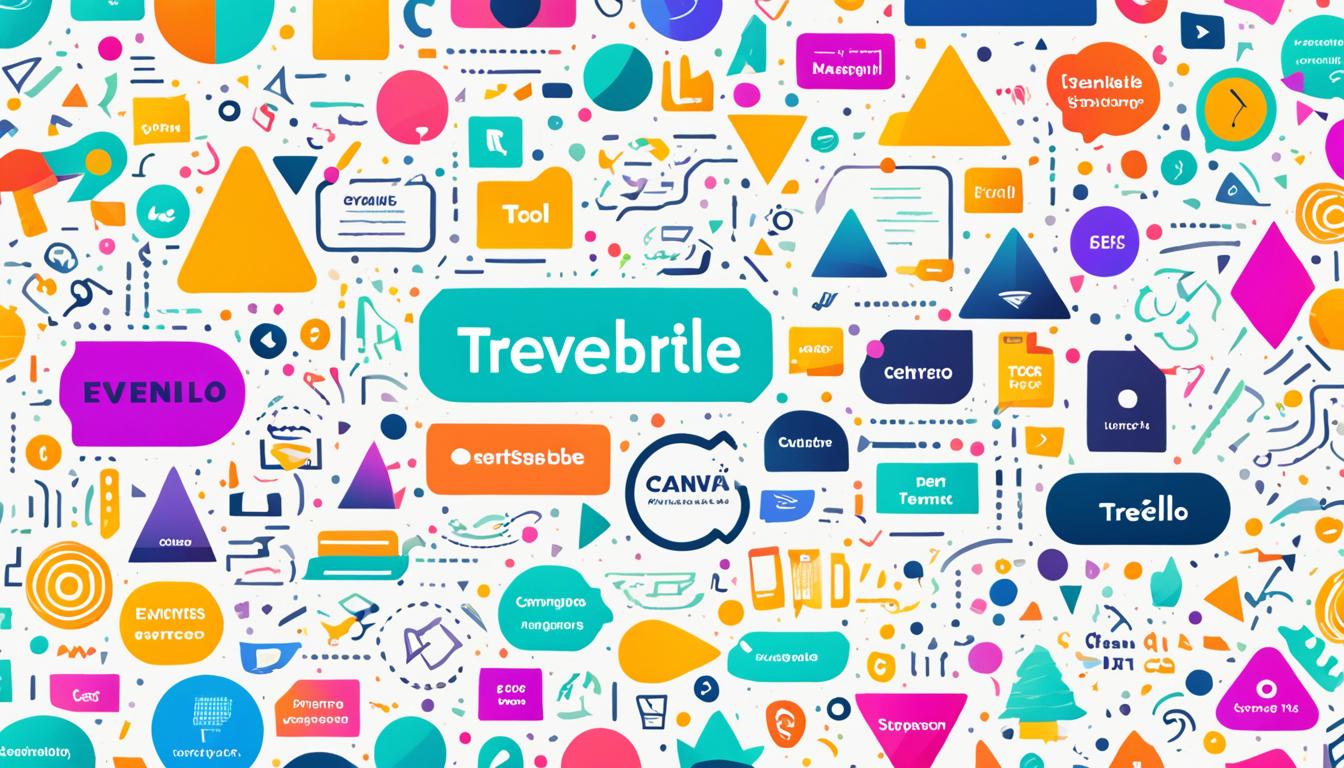Hyderabad , India
Have you ever wondered how some startups pull off amazing events without spending a lot? In today’s fast-paced business world, great event management can really set us apart. Using free event management tools helps us save money and make a big impact.
These tools make planning events easier, from handling logistics to marketing through automation. They let startups focus on their main goals while dealing with event management’s challenges. Let’s explore the best free tools that can help us meet our event goals well.
Key Takeaways
- Free event management tools reduce costs while maximizing event impact.
- Streamlined logistics and efficient planning are achievable through event planning software.
- Utilizing event marketing automation enhances outreach and engagement.
- Effective tools enable us to coordinate and analyze attendance seamlessly.
- Startups can focus resources on growth while leveraging available technology.
Why Startups Need Free Event Management Tools
Startups face the tough task of promoting their services and building brand awareness on a tight budget. Free Event Management Tools are a big help, offering ways to plan and run events without spending a lot. These tools help us manage everything from signing up attendees to sending out messages, keeping our budget safe and making a big impact.
Marketing can eat up a lot of our budget, sometimes more than 30%. Using Event Planning Software helps us save money and work better. For example, Eventbrite not only handles ticket sales but also has tools to draw in potential guests. Tools like Asana let us keep track of projects, assign tasks, and see how things are going, all for free.
Using free tools is key for startups to stand out. With tools like Canva and Logomakerr.ai, we can make our brand look great without needing design skills. MailChimp also offers free email marketing tools to help us connect with customers. This shows how being smart with resources is important for startups.

Free Event Management Tools help us draw in more people and keep costs low. This lets us focus on growing our business, not just dealing with event details. Our aim is to make events that really make an impact, and using the best free tools helps us do that.
Looking at different tools and strategies is important for us. A good way to learn more is by checking out this resource. It lists the top tools for planning events well.
Top Features to Look for in Event Planning Software
Choosing the right event planning software can change how we handle events, making everything go smoothly. We should look for features that make hard tasks easier and help us plan successful events. Here are key things to think about:
- User-friendly interfaces make it easy for planners and guests.
- Customizable templates for invites and sign-ups let us match the event’s theme.
- Automated communication tools keep guests updated before and after the event.
- Calendar integrations keep all important dates and deadlines in line for better planning.
- Real-time analytics help us manage budgets and track attendance during and after the event.
Also, think about features for managing event logistics, like mobile access and team collaboration tools. These help teams work together well, especially for big or hybrid events. Tools like Whova are great for startups because they offer everything in one place.

We’ve been in the event industry for over 20 years and know how important the right tools are. Options like Cvent are great for big events because they grow with you. Trello is easy to use and helps keep things organized. When picking Event Budgeting Tools, make sure they help you stick to your budget to avoid spending too much.
Using good event planning software helps us work better, lowers stress, and makes our events memorable for everyone.
The Benefits of Using Online Event Organizer Platforms
Using an Online Event Organizer has changed how we plan events. These platforms make many tasks easier. This lets us focus on making events fun instead of getting stuck on details.
Event Registration Tools make signing up and buying tickets easy. This saves us about 8.2 hours per event. We can then spend more time making the event better for everyone who comes.
These platforms let us give everyone a unique experience with custom agendas and chances to meet others. This makes people happier and more involved. We can also use marketing tools like emails and social media to get the word out and draw in more people.
Online platforms also help us manage money well. They track our spending and income, helping us stick to our budgets. They also protect our attendees’ info and make sure we follow the rules.
Overall, using an Online Event Organizer makes planning events better and more efficient. It helps teams work together better and makes sure everyone has a good time.
Free Event Registration Tools for Maximizing Attendance
In today’s fast-paced event planning, free event registration tools are key to getting more people to come. These tools make signing up easy and smooth for potential attendees. They also give organizers important details about who’s coming, helping them plan better for the future.
Free event registration tools have some great features:
- Customizable registration forms that fit your event’s needs.
- Automated confirmation emails to keep people updated and interested.
- Dynamic attendee tracking for real-time stats on who’s signed up.
Using these tools, startups can build a strong list of attendees. This helps with targeted marketing and can increase attendance at future events. It’s important to find the right event ticketing solutions for your specific events.
| Tool | GetApp Rating | Fees |
|---|---|---|
| EventBookings | 4.7/5 | 1% + 30¢ (global); 2% + 30¢ (Australia) |
| Eventbrite | 4.6/5 | Flex Plan: $9.99/event; Pro: $29/month; Premium: personalized pricing |
| TicketSpice | 4.9/5 | 99¢ per ticket + 2.99% credit card fee |
| Cvent | 4.4/5 | Customized pricing based on event needs |
| Eventzilla | 4.4/5 | Basic: $1.50/registration; Pro: 2.9% + $1.50; Plus: 2.9% + $1.50 |
| Brown Paper Tickets | 3.7/5 | Starts at $1.49 + 6% per ticket |
Choosing the right free event registration tools makes signing up easy and helps get more people to your events.
Streamlining Communication with Free Event Logistics Management Tools
Good communication is key to successful Event Logistics Management. Using free tools made for this job helps our team work together well. This reduces mistakes and misunderstandings. Tools like shared calendars, task lists, and instant messaging make our work better together.
Platforms like Asana, Trello, and Slack are great for Event Planning Software. They make Streamlining Communication better and help manage projects with task tracking and sharing files. Slack lets us talk easily and share important documents quickly.
Here’s a look at some top free tools and their main features:
| Tool Name | Key Features | Best For |
|---|---|---|
| Asana | Task management, project planning | Team collaboration and tracking |
| Trello | Visual task boards, deadlines | Simple project visualization |
| Slack | Real-time messaging, file sharing | Instant communication and updates |
| ClickUp | Task assignments, goal tracking | Complex project management |
| Evernote | Note-taking, document organization | Information gathering and storage |
Using these Event Logistics Management tools makes our events more organized. Everyone stays informed and on the same page. This leads to smoother events and lets us focus on making great experiences for our guests.
Event Scheduling Apps That Every Startup Should Consider
In today’s fast-paced world, managing time well is key for startups. Event scheduling apps are great for making coordination smoother. They help teams keep track of their schedules easily. These apps make booking appointments simpler, preventing double bookings and boosting productivity.
Features that Enhance Efficiency
When looking at Event Planning Software, focus on features that make things more efficient. Important features include:
- Automated reminders to remind people about events.
- Calendar integration for easy schedule syncing.
- Ability to invite many people for planning projects together.
- Analytics to track who comes and improve future events.
These features help events run smoothly. This lets startups focus on their goals without worrying about the details.
Top Picks for Scheduling
We found some top Event Scheduling Apps that offer great functionality and user experience:
| App Name | Key Features | Pricing |
|---|---|---|
| Calendly | User-friendly interface, multiple calendar integration, automated email reminders | Free to start; premium plans available |
| Doodle | Group scheduling, poll options, integration with other calendars | Free with premium features starting at $6.95/month |
| Swoogo | User-friendliness, event website creation, robust analytics | Starts at $11,800/year |
| Eventcombo | Advanced email marketing features, custom pricing options | Custom pricing |
| Whova | Enhancing attendee experience, custom event agendas | Custom pricing |
Using these Event Scheduling Apps can really cut down on event planning stress. They help with managing locations, accommodations, and invites. This way, startups can have successful events and focus on growing.
Best Virtual Event Platforms for Startups
In today’s digital age, startups can greatly benefit from top virtual event platforms. These platforms let startups host webinars, conferences, and workshops online. They reach a wider audience without the need for a physical location.
Features like live chats, polls, and Q&A make events more engaging. They help increase how many people take part. It’s important to pick platforms that make organizing easy. They should have automated emails and ticketing to streamline the process.
| Platform | Key Features | Pricing |
|---|---|---|
| EventX | ISO 27001 certified, supports over 5 million attendees, freemium model | Contact for pricing |
| Livestorm | Free plan for up to 30 contacts, easy webinar hosting | Paid plans start at $99/month |
| GoTo Webinar | Supports up to 3,000 attendees, excellent for large events | Paid plans start at $59/month |
| Zoom Webinars | Branding customization available, user-friendly interface | Starts at $690/year for 500 attendees |
| Webex Webinars | Supports up to 1,000 attendees, robust security features | Starts at $275/month per license |
Choosing the right online event organizer is key for startups. You should look at pricing, features, and how many people you want to reach. Using these platforms can boost engagement, improve branding, and help you connect with more customers.
Utilizing Event Marketing Automation for Better Engagement
In today’s fast-paced event world, Event Marketing Automation is key. It helps startups reach people across many channels, making their outreach more effective. By using Engagement Tools and Event Planning Software, we can make our process smoother. This leads to better engagement before, during, and after the event.
Effective Strategies to Maximize Outreach
For better marketing impact, we need strong strategies. We start by sorting our audience by interests and demographics. This way, we can send out messages that really speak to each group.
Automating emails and social media helps us stay consistent and reach more people. We send out content that matters to our audience.
Using data from our Event Planning Software is also key. It lets us understand what our guests like and what they don’t. This info helps us plan better events and improve our marketing. Plus, AI chatbots make talking to attendees smoother, giving quick answers and gathering important data.
Finally, automating our reports helps us keep an eye on how our events are doing. We track things like who signed up, how engaged they were, and what they thought. This info helps us make our future events even better.
For a deeper look at starting a business in India, we suggest checking out some valuable. They offer steps for starting a successful business.
| Strategy | Description | Benefits |
|---|---|---|
| Audience Segmentation | Divide audience into specific groups based on demographics and interests. | Enhances personalization and engagement. |
| Email Marketing Automation | Pre-schedule and personalize email campaigns. | Improves response rates and attendee registrations. |
| Data Analysis | Analyze attendee data for insights on user behavior. | Informs future event planning and marketing strategies. |
| AI Chatbots | Automate customer interactions and gather data. | Streamlines guest experience and improves engagement. |
| Automated Reporting | Using software to track performance metrics in real time. | Facilitates quick adjustments and data-driven decisions. |
Conclusion
In conclusion, using free event management tools can really help us plan and run events better, especially for startups. Many event planners deal with tight budgets, so they look for affordable options. These tools help us aim for more attendees and focus on making new and exciting content.
We talked about important features to look for in an online event organizer. Things like easy-to-use interfaces, options to customize, and tools for working together in real time. Even though some free tools might not have as many features or support as paid ones, tools like HubSpot CRM and Canva are great for small to medium events. For example, Sweap’s Virtual Event Platform is known for being versatile and making checking in guests easy.
By using the right free event management tools, we can host successful events that are also good for our budgets. The way event planning is changing, thanks to free tools, helps startups like ours work better and connect with our community more effectively.
FAQ
What are some of the best free event management tools available for startups?
For startups, top free event management tools include Eventbrite for signing up attendees, Canva for marketing materials, and Google Forms for surveys. These tools make planning and running events easier.
How can free event planning software help with logistics management?
Free event planning software helps with logistics by offering tools to track budgets, manage sign-ups, and keep teams in touch. This ensures events run smoothly.
Which features are essential in event registration tools?
Key features in event registration tools are customizable forms, automated confirmation emails, tracking attendees, and easy payment processing. These improve the user experience.
How can startups leverage online event organizer platforms?
Startups can use online event platforms to handle event sign-ups, ticket sales, and talk to attendees in one spot. This makes events more cohesive and engaging.
What benefits do virtual event platforms offer startups?
Virtual event platforms help startups by reaching more people with live streaming, engaging tools for attendees, and analytics for tracking success. They’re also cost-effective for hosting events.
In what ways can event marketing automation drive engagement?
Event marketing automation boosts engagement by sending out emails, promoting on social media, and following up automatically. It lets startups create tailored experiences based on what attendees like and say.
What should startups look for in event scheduling apps?
Startups should want features like reminders, calendar links, and inviting multiple people in event scheduling apps. These make planning easier.
How do communication tools contribute to effective event logistics management?
Communication tools make managing event logistics better by letting teams message in real-time, share calendars, and assign tasks. This cuts down on misunderstandings and keeps everyone on the same page.








